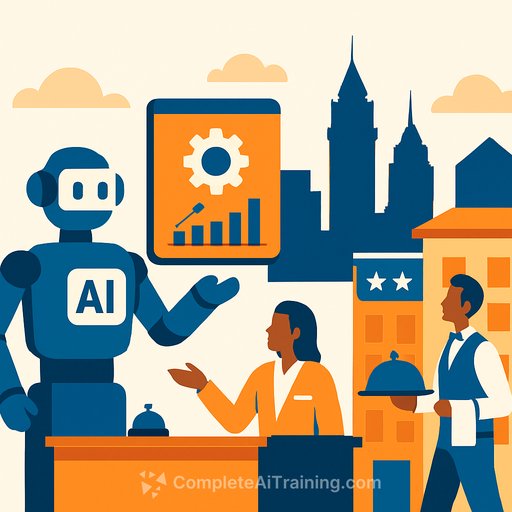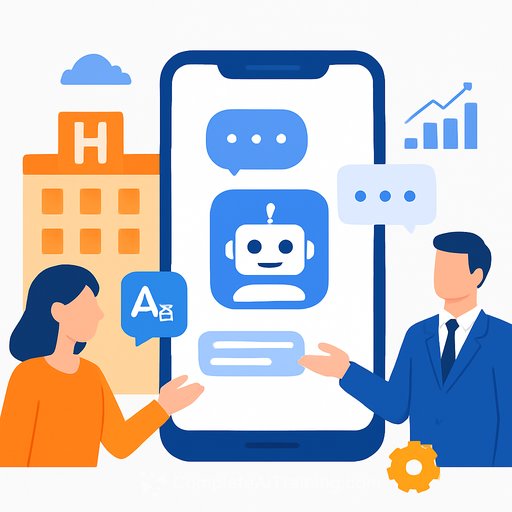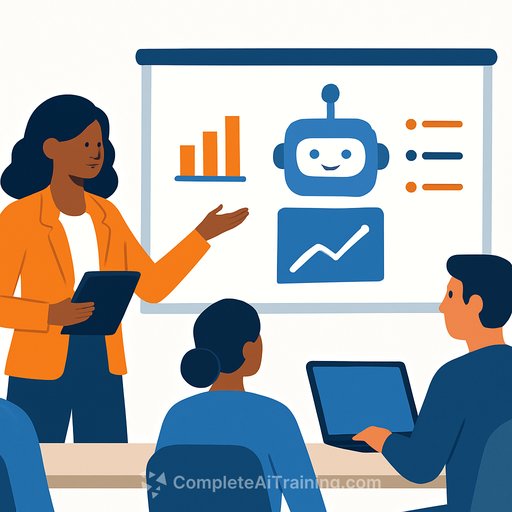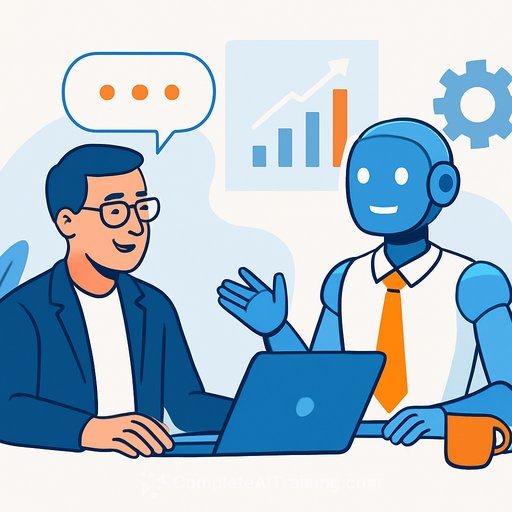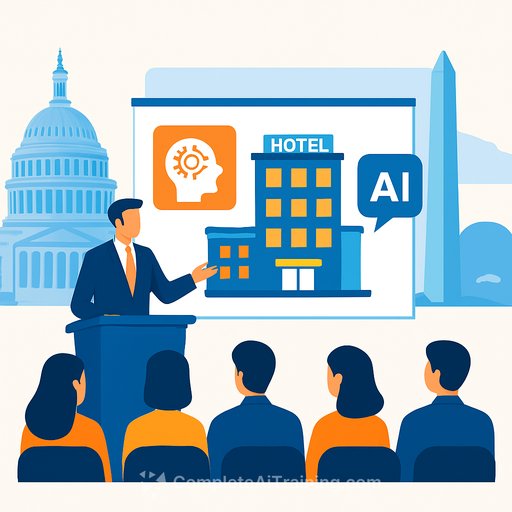How AI Is Helping Hospitality Companies in Baltimore Cut Costs and Improve Efficiency
Summary: Baltimore's hospitality industry is using artificial intelligence to reduce expenses and increase efficiency. Through automation, predictive maintenance, and AI chatbots supporting over 58 languages, hotels are allocating up to half of their IT budgets to AI. This results in up to 12% gains in staff productivity and better guest personalization and safety.
Enhancing Operational Efficiency and Cutting Costs in Baltimore Hotels
Baltimore hotels are adopting AI-driven automation to tackle staffing shortages and improve efficiency. Autonomous cleaning robots, such as vacuums and UV disinfection units, maintain hygiene standards around the clock without fatigue or errors. This technology frees staff to focus on personalized guest services, as seen at places like Country Inn and Suites in Rosedale.
Back-office automation streamlines tasks like invoice management and housekeeping scheduling, saving thousands of labor hours monthly. These improvements boost staff morale while helping hotels manage wage pressures. AI also supports predictive maintenance and dynamic pricing, optimizing resources and revenue. Smart kiosks and mobile check-ins are expanding to offer seamless guest experiences while easing operational challenges.
Improving Guest Experiences with AI in Baltimore
AI chatbots in Baltimore hotels provide instant, personalized support 24/7. They handle booking management, answer inquiries, and offer local recommendations in multiple languages. For instance, Aiello GuestWeb supports over 58 languages and allows guests to place orders or report issues via mobile without downloading an app, reducing wait times and staff workload.
Nearby, Marriott International uses AI chatbots on platforms like Facebook Messenger to assist guests with reservations and service requests, often responding within five seconds. These tools help hotels streamline communication, personalize guest interactions, and encourage direct bookings while lowering operational costs.
Boosting Security and Safety in Baltimore's Hospitality with AI
Baltimore has strict rules on facial recognition, with a ban on private sector use that expired at the end of 2022. Previously, unauthorized use risked fines and imprisonment. The ban aimed to address privacy and bias concerns but excluded police use. This created challenges for hotels wanting to deploy facial recognition for security.
To comply, hotels rely on other AI security solutions like predictive maintenance, biometric access control not covered by the ban, and AI-driven video analytics. These tools improve safety and operational efficiency without violating regulations. Balancing privacy with security remains a priority for Baltimore’s hospitality venues.
Workforce and Back-Office Optimization in Baltimore Hospitality
Hotels in Baltimore and Towson use AI scheduling tools to handle seasonal demand and event-driven staffing needs. Smart scheduling reduces labor costs by 5-7%, improves flexibility, and boosts employee satisfaction with shift swapping and mobile access. These tools ensure compliance with Maryland labor laws, reducing violation risks by up to 90%.
AI-driven workforce management also streamlines credential tracking and communication for healthcare facilities nearby. Overall, predictive analytics and real-time adjustments cut administrative overhead by up to 70%, lowering labor costs by as much as 12%. This fosters fair scheduling and better department coordination, benefiting both staff and guests.
Case Studies of AI Success in Baltimore Hospitality Companies
Remington Hospitality uses AI-powered analytics to automate manual data collection, saving hundreds of hours and gaining insights into guest preferences and sales trends. This helps optimize revenue streams, such as premium water sales in select locations.
Salesforce’s Einstein AI platform supports Baltimore hotels with predictive analytics and personalized marketing, driving customer loyalty and innovation. Local efforts also include AI combined with IoT for predictive maintenance, minimizing downtime and keeping operations smooth.
These examples show how AI adoption cuts costs, streamlines workflows, and personalizes guest services, positioning Baltimore’s hospitality sector for growth and competitiveness.
Future Trends and AI Market Growth in Baltimore's Hospitality Sector
The AI market in Baltimore's hospitality sector is expected to grow significantly. Travel and hospitality AI is projected to reach $8.35 billion by 2030, growing at a 15.2% CAGR. Technologies like machine learning, robotics, IoT, and blockchain are enhancing efficiency and customer engagement.
AI applications such as predictive maintenance and customer service chatbots are already reducing costs and improving guest satisfaction locally. The broader hospitality AI market is growing faster, expected to jump from $0.24 billion in 2025 to $1.46 billion by 2029 at a 57.8% CAGR.
North America leads this growth due to strong digital infrastructure and investment. Baltimore is well positioned to benefit, with increasing demand for AI skills and prompt engineering. For hospitality professionals seeking AI skills, programs like those offered by Complete AI Training provide practical courses to stay competitive.
Frequently Asked Questions
- How is AI helping Baltimore hospitality companies cut costs and improve efficiency?
AI automates back-office tasks, optimizes workforce scheduling, deploys autonomous cleaning robots, and enables predictive maintenance. This reduces labor costs, improves workflows, and enhances resource management. - In what ways are AI-powered guest experiences improving hotels in Baltimore?
AI chatbots offer instant, multilingual assistance, automate bookings and service requests, provide local recommendations, and enable mobile concierge services. These features boost guest satisfaction and reduce staff workload. - What security challenges and AI solutions are present in Baltimore's hospitality sector?
Facial recognition is restricted by city ordinance, but hotels use alternative AI security like predictive maintenance, biometric access control exempt from the ban, and AI video analytics to enhance safety while respecting privacy laws. - How is AI transforming workforce management in Baltimore's hospitality industry?
AI scheduling tools optimize shifts, increase flexibility, cut labor costs by up to 12%, support mobile shift swaps, and ensure compliance with labor laws. This helps manage seasonal demand and improves employee satisfaction. - What future trends are expected for AI adoption in Baltimore's hospitality market?
The market will grow rapidly with advances in machine learning, robotics, IoT, and customer engagement tools. Demand for AI skills will rise, and new AI ventures will emerge supported by local training programs like those at Complete AI Training.
Your membership also unlocks:

